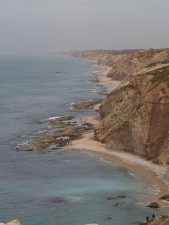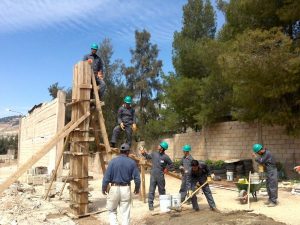
Istanbul – a major hub for train travel across the Middle East
Survey results published this week reveal that the majority of international travelers would prefer to take trains instead of aeroplanes, if they had the opportunity. The poll of 300 consumers, conducted for train technology company Silverrail, showed that 79% would choose trains over planes if high-speed rail options are available, and 61% would choose rail over air if the cost were the same or lower. Two-thirds said that they would add an hour onto train times when comparing them with flights, because they would be spared the time and hassle of check-in queues and increasingly stringent air security.
In Europe, trains are already challenging short-haul flights on routes in France, Spain and Germany where fast rail travel is already well established. But, said travel technology website Tnooz, few tour operators were taking account of customer preferences, with only specialised eco- or train enthusiast organisers offering rail options.
But what about the Middle East? How is the region doing in terms of making train travel a viable alternative for both tourists and locals?
– in Saudi Arabia, the ‘Mekkah metro’ high-speed train, designed principally to ferry hundreds of thousands of Hajj pilgrims between Muslim holy sites, was part-launched for Hajj 2010, and should be fully operational by November 2011;
– in the Gulf, Qatar, the United Arab Emirates, Kuwait, Oman and Bahrain have announced plans to invest a total of $106 billion in rail networks around the region
– in Lebanon, campaign groups are pressing for a modern public transport system;
– and in Israel, the centre of the country is increasingly accessible on the train network, but it doesn’t extend far enough to challenge flights to Eilat, and the expansion of the rail network has been blamed for destroying beautiful natural environments.
Seat61.com, the website of international train travel guru Mark Smith, has information (including timetables, ticketing instructions and traveller reviews) on train trips all over the world. It shows that the situation across much of the rest of the Middle East is patchy, but improving. In Egypt, for example, sleeper and seat accommodation is available between major destinations such as Cairo, Alexandria and Aswan. Most trains are modern and comfortable. The trains in Morocco are described as “some of the best in Africa, and they’re the ideal choice for getting around between cities. Fast, modern, air-conditioned” and the Tunisian railways are also said to be “comfortable, modern and air-conditioned”. The website also includes information on how to get to North African countries like Morocco and Tunisia by rail and ferry from Europe, rather than by air.
Of Turkish train travel, Seat61 declares that: “Guidebooks may tell you that Turkey has a good bus network and that ‘buses are faster than trains’. The thing is, do you really want to spend 12 hours in a bus? When you can travel on a civilised inexpensive air-conditioned train, with a bed to sleep in in your own private sleeper, a restaurant car for your meals & space to move around, through fantastic Turkish scenery that’s unspoilt by roadside development? Travellers who take the train, ignoring the misguided advice to always ‘take the bus’, rave about their train experiences.” The website also states that major improvements and the addition of some high-speed lines have reduced Istanbul-Ankara train times to just 5 hours, and that by 2013 they’ll be down to 3 hours – faster than travelling by plane.
Travellers coming from Europe can also head from Turkey south to Syria, a route which stops in Aleppo with changes for trains to Damascus and Latakia. Repairs to the historic Hijaz Railway route now mean that since 2010 travellers can extend their journeys even further south by rail, reaching Amman in Jordan and even further south to major tourist destinations such as the Nabatean city of Petra. However, travellers are warned that this route is still often disorganised and subject to delays or timetable changes. And as well as travelling by train from Istanbul south to Syria and Jordan, it’s also eminently possible to use railways to go east to Iran, via Ankara and a ferry across Lake Van, on smart modern trains with comfortable couchettes.
One deterrent to many prospective train tourists is probably, however, the difficulty in buying tickets. Many countries still only sell tickets in person; internet systems are confined to one country’s services. In Europe a slowly-increasing range of websites offer such a service (RailEurope is one example). But, as Tnooz noted from the results of the Silverrail survey, “90% say they would like to see rail fares displayed alongside flights when searching for prices on travel sites”, and it may be that integrated ticket sales could be one of the biggest steps which Middle Eastern countries could take to tempt train travellers.
(Photo by Paul Dandini on Flickr)
Read more about public transport on Green Prophet:
Gulf States On Track To Build “European-Style” Rail System
Why Masdar’s Personal Transport System would have been great
How To Live A Car-Free Existence



Have always loved train travel.